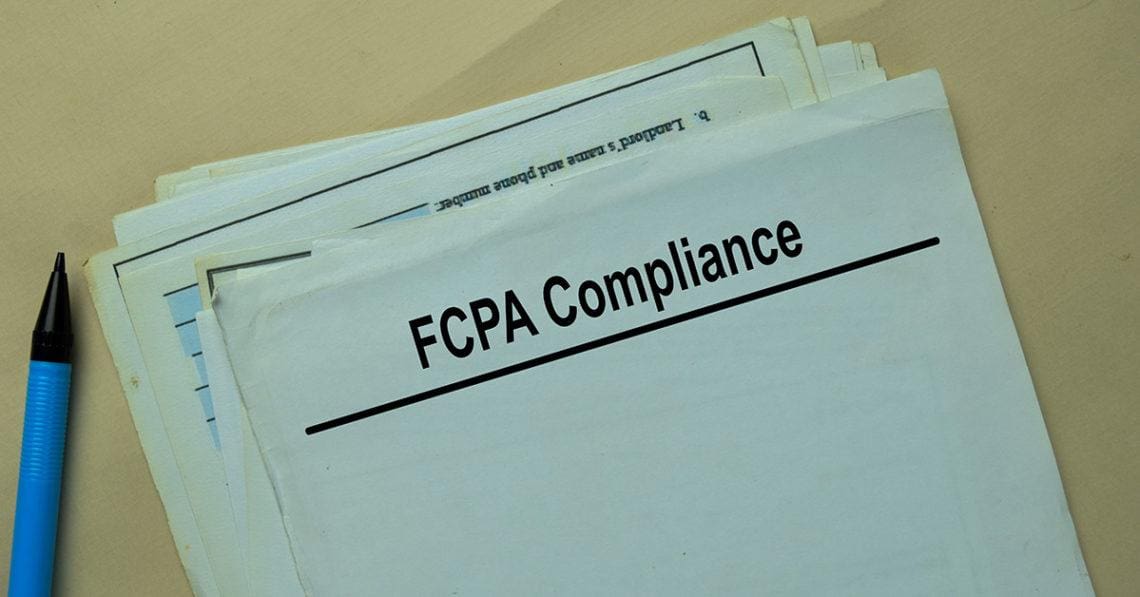FCPA opinion releases can form part of your compliance program guidance arsenal, but there have only been two of them in the past seven years, so if you are relatively new to ethics and compliance, you may not be so familiar with them. In this month’s column, Mary Shirley covers some of the basics about FCPA opinion releases, offering takeaways and a deep dive from the latest release, which came out in January of this year.
A formal mechanism under 28 CFR Part 80, the opinion procedure release allows for requests to be made to the DOJ about whether certain conduct would breach the Foreign Corrupt Practices Act. Either domestic issuer companies or individuals are permitted to make a request, and the procedure should not be used for posing hypothetical queries.
Here’s what you need to know about FCPA opinion procedure releases:
Benefits to the requester
- Peace of mind if the misconduct is said not to violate the FCPA
- Certainty of where they stand either way, putting them in a position to know how to best proceed.
Benefits to the compliance community
- Provides broad brush understanding of how the DOJ would treat certain situations, acting as general guidance, with limitations (see next section).
Limitations for the requester
- Can result in a self-disclosure to the DOJ if the department is of the view that the conduct would be problematic under the FCPA. (An anonymized catalog of the opinions released under 28 CFR Part 80 so far can be found here.)
- Though the January 2022 release was issued very quickly after the opinion was sought, some critics have expressed concern about the process typically being quite lengthy. The DOJ is able to request additional information which can, obviously and understandably, add to the length of time it takes to release the opinion. Therefore if a business decision needs to be made within days, the opinion may not be back in time.
- Not binding beyond the DOJ.
Limitations for the compliance community
- In addition to not being binding, each release is only for the specific circumstances of each case presented, meaning they do not set precedent. So, if you had a similar fact matrix, you cannot wholly rely on a previous opinion that no enforcement action is warranted. While the releases are good general guidance, they are perhaps not as helpful as the Evaluation of Corporate Compliance Programs guidance (and its update), which feels more concrete.
- They are few and far between these days, so there is not a lot to go on in this category of guidance that is recent.
Opinion procedure release No. 22-1
Released in January 2022, this opinion release slipped under the radar for many in the compliance community, as there was little fanfare surrounding it. The fact scenario centered around a naval captain relying on incorrect information, leading to him inadvertently putting his ship in the waters of another country. That country detained him in a local prison while the crew were ordered to remain on the ship. The requester supplied documentation to the DOJ demonstrating that the captain was suffering from a serious medical condition at the time, and the circumstances of the detention were detrimental to his condition.
Download the FCPA Opinion Procedure Release No. 22-1
A payment of $175,000 was sought in order to release the captain and crew or they would be detained for longer and the ship confiscated. The requester went to efforts to get proof that the requested payment was an official one and tried various alternatives to secure the release of their people but was unsuccessful.
The DOJ’s analysis concluded that the proposed payment would not trigger an enforcement action under the FCPA because the payment was not being made with corrupt intent or to obtain or retain business. Rather, it was being made for the purpose of ensuring the safety of the naval members.
This view is reconciled with the approach that many companies take in anti-corruption training, where compliance advises that if life, liberty and bodily harm are threatened, it can be acceptable to make the payment and then report the incident to compliance as soon as possible and document the situation.
Sometimes this is even enshrined in compliance policies or codes of conduct through what is sometimes referred to as the extortion defense, even though the word extortion does not appear once in the FCPA. As one former colleague pointed out many years ago when I worked for another organization describing extortion circumstances, “Mary, that’s not a bribe, that’s a mugging!” Oh, how I laughed.
As humans we know that he was right, and safety should be the one thing that trumps compliance. This opinion comes as reassurance that companies taking this line can be reasonably comfortable about it.
Where I have always struggled is the extent to which restriction on one’s liberty would be considered a situation where enforcement action would not be pursued. Just how long would one in reasonable or good health need to be detained before it’s acceptable to pay the money requested for release? I guess we’ll have to wait for someone to submit a request and find out.














